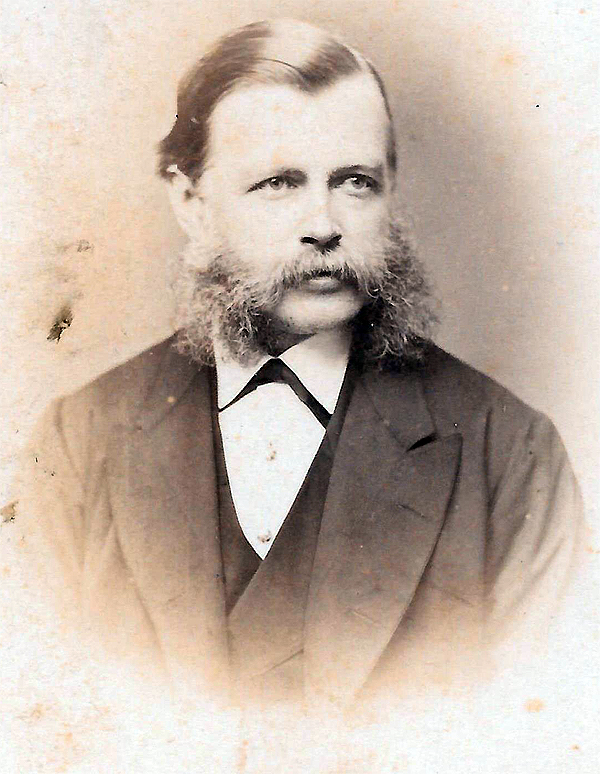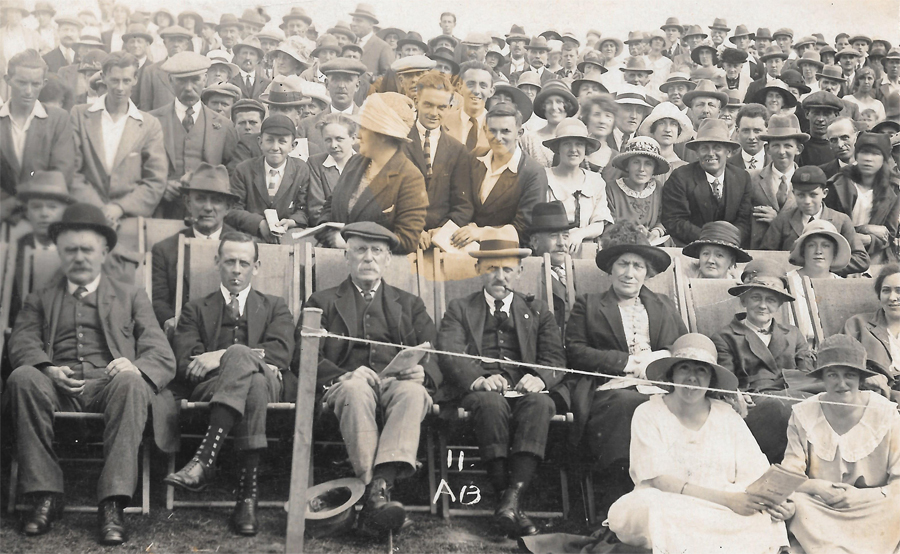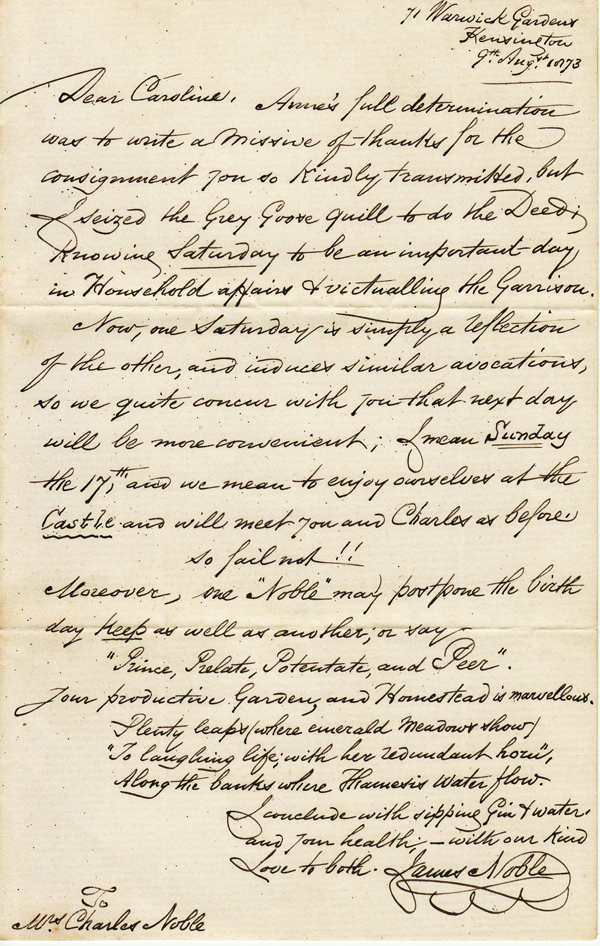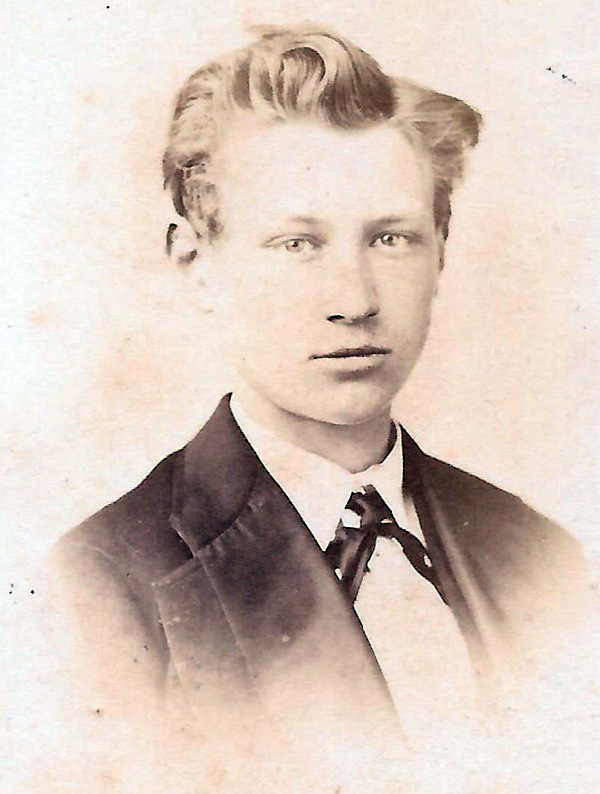 Ian Waugh is a British broadcaster, historian and published author.
Ian Waugh is a British broadcaster, historian and published author.
Born in Dorset, brought up in Devon, with my roots in the South West of England going back many generations. I am a passionate historian, British historic researcher who co-authored the book The Man They Couldn’t Hang, own the website and the material.
As a broadcaster I have worked with radio and television networks in the UK. Since 1972 my voice has been heard on British independent television stations, some BBC and independent radio outlets. I have also worked with state broadcasters in countries in Europe and Africa.
I am fascinated with British modern history, I’ve written about aspects of it, created websites linked to it and research constantly – it has become a pleasant addiction. My family tree data which extends back to the 1500’s is here (image: 11 May 1995 – Babbacombe, Torbay).
 I advise those seeking information relating to events and stories in the British national and regional newspapers between 1750 – 1950. This generates many enquiries from users worldwide who are interested to know more about a criminal or other events in their family history.
I advise those seeking information relating to events and stories in the British national and regional newspapers between 1750 – 1950. This generates many enquiries from users worldwide who are interested to know more about a criminal or other events in their family history.
News and current affairs fascinates me. I start the day with it, end with it but I am not glued to it. I have severe osteoarthritis causing me extreme mobility issues and I am also a stroke survivor following two strokes that have left me partially paralysed.
 Why I’m Fascinated by British Social History:
Why I’m Fascinated by British Social History:
Personal Passion: As an amateur historian, I’ve had a lifelong fascination with British history.
Interest in Ordinary Lives: My focus lies in British social history, particularly in understanding the lives of ordinary people, including their experiences, emotions, and perspectives.
Preserving Personal Records: I find value in preserving records and artefacts left behind by individuals, such as letters, photographs, and personal documents.
Deeper Understanding of the Past: Exploring these personal stories allows for a more profound comprehension of historical events and their impact on the present.
Benefits of Exploring Everyday Lives:
Challenges and Triumphs: By studying the lives of everyday people, we gain insights into the challenges and triumphs they faced.
Cultural Insights: This exploration unveils customs, beliefs, and lifestyles, contributing to a more nuanced understanding of historical periods.
 Marginalised Perspectives: It sheds light on the experiences and perspectives of marginalised groups, offering a more inclusive historical narrative.
Marginalised Perspectives: It sheds light on the experiences and perspectives of marginalised groups, offering a more inclusive historical narrative.
British Social History as a Captivating Field:
Encompassing Changes Over Time: British social history covers social, cultural, and economic changes that have occurred over time in Britain.
Insights into Daily Life: Researching this field provides valuable insights into how people lived and navigated challenges throughout different historical periods.
Shaping British Society: Understanding social movements and cultural developments contributes to a deeper appreciation of how British society has evolved.
 Accessible Resources for Study:
Accessible Resources for Study:
Archives, Libraries, Museums: Abundant resources, including archives, libraries, and museums, offer access to books, photographs, and artifacts.
Online Databases: Platforms like the British Library’s digital collections provide convenient access to a wide range of historical materials.
Key to Successful Research: A strong understanding of historical context, critical thinking skills, and the exploration of multiple sources are crucial for successful research in British social history.
Value of Archives and Personal Collections:
Invaluable Resources: Archives, letters, and ephemera left by ordinary British people serve as invaluable resources for understanding the past.
Personal Glimpses: They offer personal glimpses into the lives and experiences of everyday people, going beyond official records.
Sole Surviving Records: In many cases, these archives and documents may be the only surviving record of a person’s life.
Importance of Remembering Ordinary Lives:
Deeper Understanding: Remembering ordinary people provides a deeper understanding of the past and how people lived their lives.
 Cultural and Social Context: Studying personal collections offers insight into the cultural, social, and historical context of specific time periods.
Cultural and Social Context: Studying personal collections offers insight into the cultural, social, and historical context of specific time periods.
Acknowledging Contributions: Preserving these collections acknowledges and celebrates the contributions of individuals who, though considered “ordinary,” played important roles in their own right.
Significance of Social History:
Daily Experiences: Social history delves into the daily experiences, customs, and values of ordinary individuals across different time periods.
Perspective on the Present: It enriches our understanding of the present and provides a sense of perspective and continuity over time.
Reviving Forgotten Stories: Historical research brings to life interesting stories, personalities, and events that may have otherwise been forgotten.
In summary, the study of British social history, fuelled by a passion for ordinary lives and enriched by accessible resources, offers a comprehensive understanding of the past and its enduring impact on contemporary society.
I’m on Twitter (X). My ‘occasional’ scribblings (m’Blog) can be found here. Links to other bits of me are on the top menu. I currently live in East Anglia.
Also: @oldbritishnews
